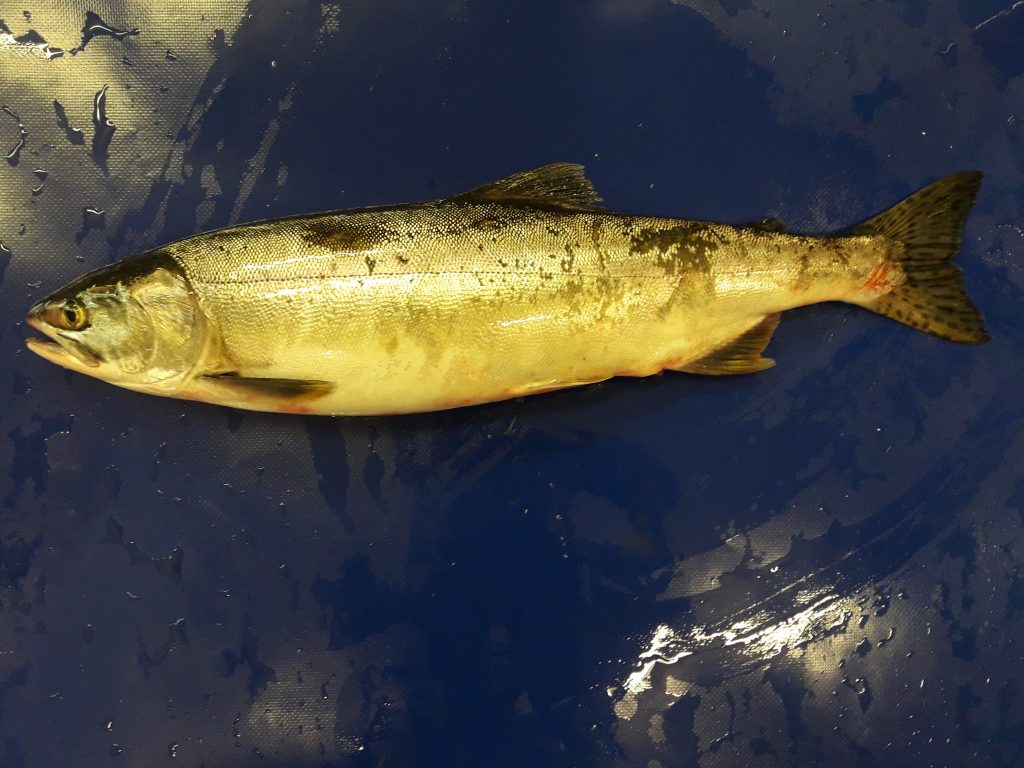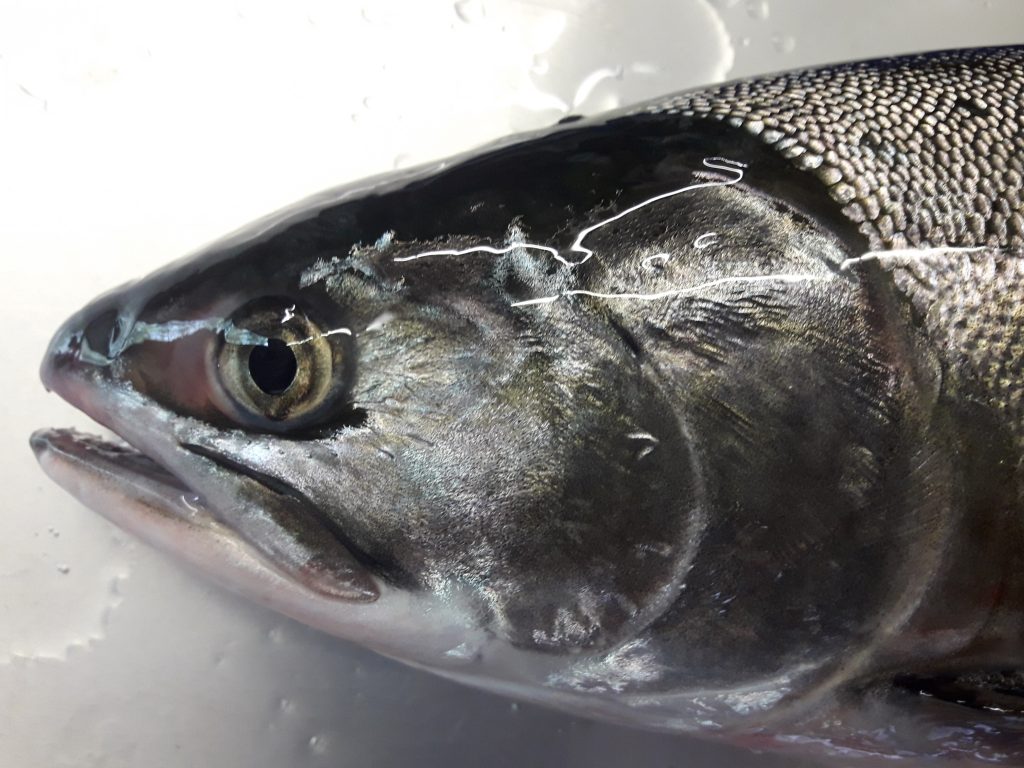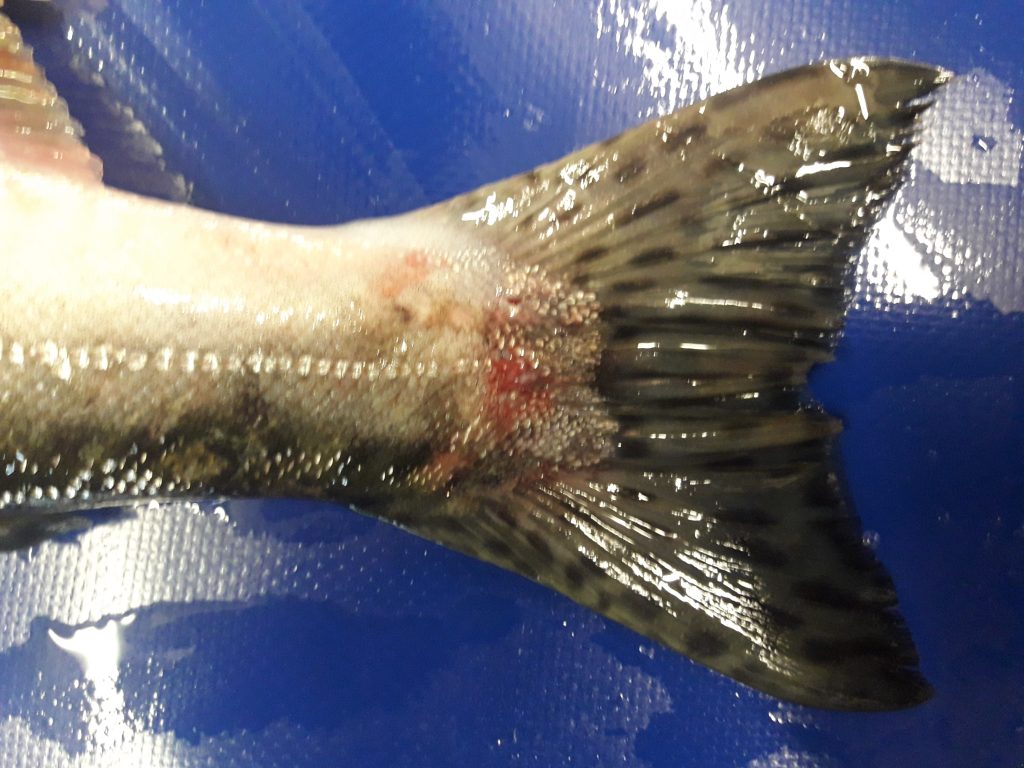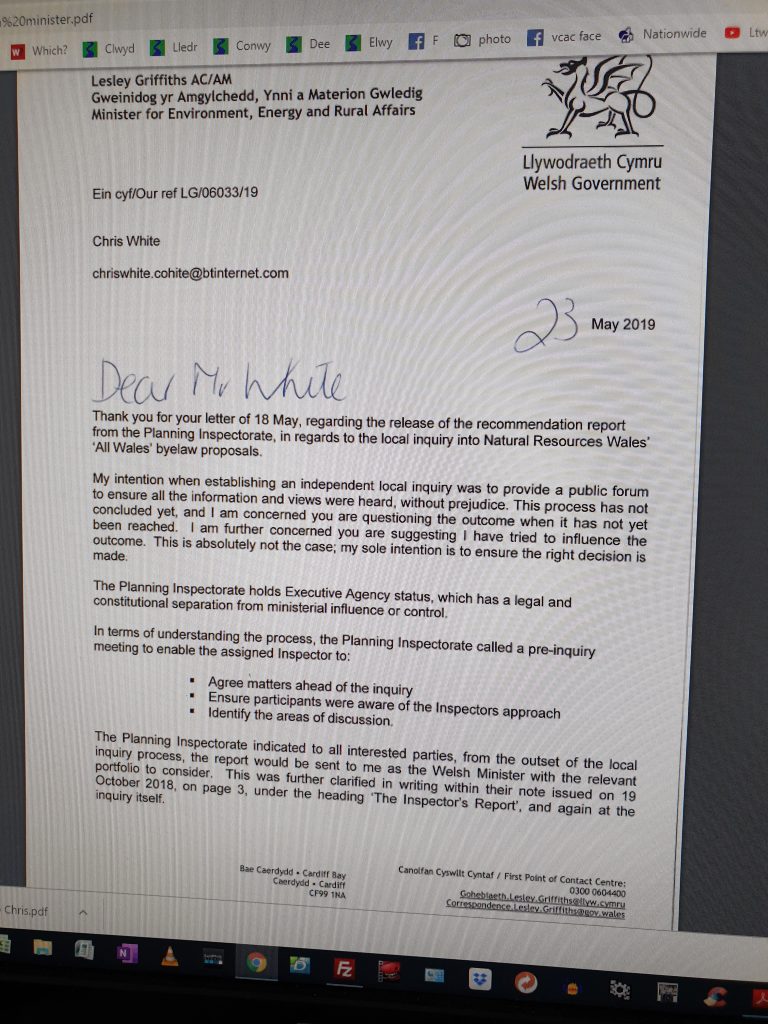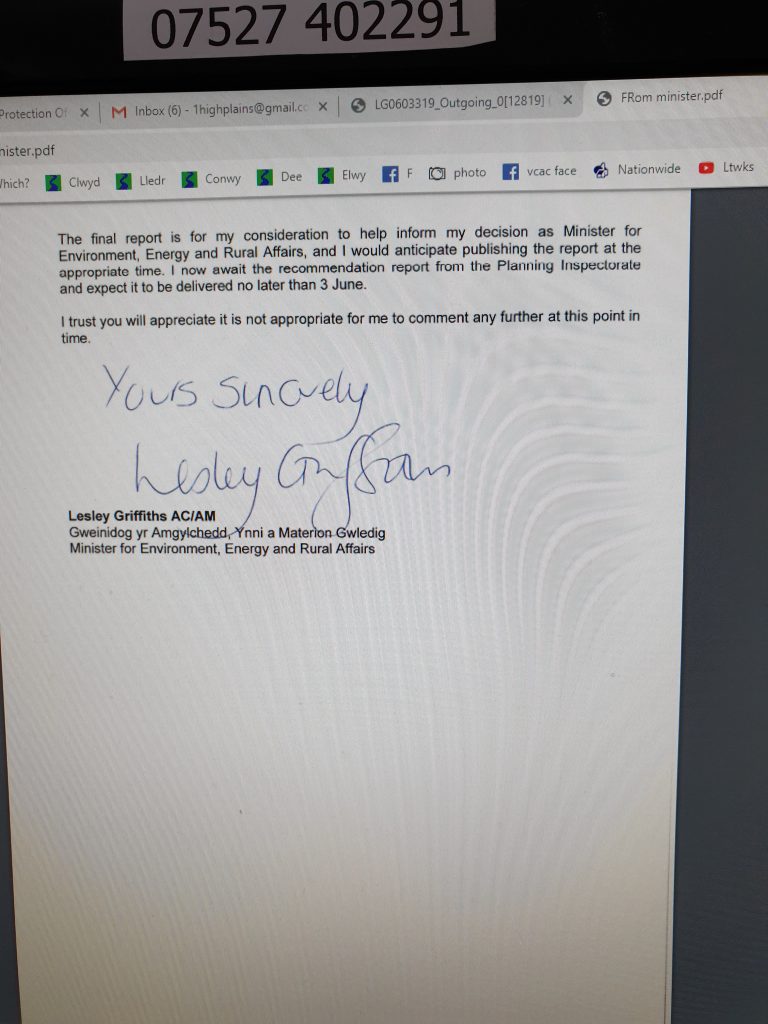23 August 2019 Re:
THE WALES ROD AND LINE (SALMON AND SEA TROUT) BYELAWS 2017 Inquiry
Dear Minister,
Thank you for the response to my appeal letter (Ref LG/06583/19) on your decision to approve the NRW byelaws. Whilst you claim it was a decision which has not been taken lightly your decision is based upon a one-sided conversation as demonstrated by the bias shown by the inspector in his report who dismissed everything we presented out of hand. Your refusal to meet with CPWF and enable us to fully explain our concerns has resulted in you making a decision which has significant impact on anglers across Wales – your electorate. There would be far more acceptance of the byelaws if there was any evidence that the proposals would have any effect on reversing the decline in migratory fish, I drew your attention to this in my letter of 26 July but it seems that, despite the overwhelming evidence of the proposals not working for the past 20 years, you consider it appropriate to just rubberstamp them. For my part the change in the byelaws will have no impact on the way that I fish but this is not the case for the small community fishing clubs in South West, Mid and North Wales. These small communities-based angling clubs fish their local rocky rivers, rivers which can only be effectively fished with bait. This is not solely about returning fish to the river, something which anglers are doing voluntarily; this is about the survival of traditional fishing techniques which have been handed down over generations and helped sustain angling in Wales. It is on behalf of these clubs that I write to you as some clubs have already experienced a reduction in membership purely on the threat of new byelaws. Your letter tends to indicate that you side with the inspector and consider that this is just a philosophical issue as most anglers are already practicing catch and release. Many rivers in Wales are exceeding the 90% release rate recommended by the North Atlantic Salmon Conservation Organisation (NASCO), more on this later. The theory that every salmon (or sea trout for that matter) caught on a worm is a dead fish does not reflect the fishing methods now used by anglers with few fish being deeply hooked. There is as much chance of salmon being deeply hooked when using a fly or spinning bait and single hooks. There is much talk by your Government of the value of heritage and yet at a stroke you will destroy much of the angling heritage on many rivers in Wales, not only by limiting the diversity of angling methods allowable but by constricting club’s ability to survive. Our concern is not about returning salmon unharmed i.e. catch and release (although returning mortally wounded fish to the water is beyond most angler and the public’s tolerance), it is about method restrictions which will at a stroke deter anglers from fishing many rivers in Wales. You say that you have tasked NRW to lead on a Salmon and Sea Trout Plan of Action, but this is nothing new and yet again we will end up with a glossy brochure full of empty promises. We have had more than 20 years of this. It is anglers who care for our rivers and yet our concerns and identification of the problems have been dismissed over the years. This has been primarily due to lack of fisheries funding, resource and commitment from Government. You say there is a need for ‘robust enforcement’ and yet poaching is rife in Wales due to the lack of enforcement staff who are ‘intelligence lead’ – this simply means after the event investigation assuming poaching incidents are in fact investigated. A poacher can, in one evening, remove the bulk of the spawning stock from a small river and once anglers are no longer fishing these rivers poachers will take full advantage and, rather than reversing the decline, this legislation is more likely to make matters worse as there will be no anglers to deter poaching activity. I mentioned above the NASCO recommendations on the need for legislation. Put simply, this says that for a river which is classified as ‘Probably at Risk’, anglers should be given 12 months to meet a 90% catch and release figure voluntarily. Only if the 90% figure is not achieved should legislation be considered, NASCO say that this should not be applied to rivers with rod catches of less than 20 salmon per year. NRW choose to use all 23 rivers in their justification for the byelaws even though many of these rivers were well below the 20 salmon per year figure, this skewed the overall results in order to justify the proposals. You recognised that in Wales 86% of all the salmon caught in 2016 were returned on a voluntary basis from catch returns on the 23 principle salmon rivers. The technical case for the byelaws developed by NRW was based on poor angler catch returns and poor fry and parr counts following significant flood events in 2014/15 and based upon these results the 5 year forward [pessimistic] forecast predicted that by 2020 salmon would be ‘At Risk’ in all Welsh rivers. Whilst this may be true for some rivers, this is not the case for all rivers, and we are seeing more salmon in some of our rivers in 2019 when NRW predicted there would be few. Where a river can be identified as having salmon stocks heading for extinction then these rivers should be closed to anglers and for that matter adventure sports. The reality is that many angling clubs are exceeding the 90% catch and release requirement voluntarily and therefore it should only be rivers which are failing to meet this 90% target which should have compulsory enforcement. As CPWF reported at the Inquiry, NASCO is drafting new proposals to its 2019 to 2024 five-year Implementation Plan for managing salmon stocks in England and Wales. Central to this is a fundamental stock reporting review, calling for improvements to the current national stock assessment methodology which classifies individual river risk status. This is a major undertaking over the next three years which we highlighted the need for, in our communications to you, through Mark Lloyd of the Angling Trust on 9th April and 17th Sept 2018. Through our colleagues in England, fisheries recommendations have been presented to the NASCO representative Paul Knight – CEO of Salmon and Trout Conservation UK (S&TCUK) for consideration at the end of this month. Additionally, Cefas/EA/NRW are currently undertaking a national England and Wales review of individual river rod exploitation rates to improve weaknesses in the estimates of river stocks. Again, the need for improvements was identified and highlighted to you and the Defra Minister in those same 2018 letters. We envisage these changes and improvements will correct current inconsistencies and weaknesses in stock reporting and adopted measured controls in both England and Wales. We note that no interim stock review arrangements have been built into the proposed NRW Welsh Byelaws and we strongly recommend phasing arrangements are considered to resolve this oversight. We proposed these arrangements in those early communications. It should be noted that the NRW technical case was presented to the NRW Board in 2015 following significant flood events and over the past 4 years there has been a recovery in some Welsh rivers, this supports the need for interim stock reviews or as happens in Scotland an annual review. Delaying the implementation of the byelaws for a further 12 months i.e. to 2021 would have little or no impact on salmon stocks but would enable anglers and for that matter tackle dealers to adapt to the byelaw proposals, my understanding is that this approach is to be adopted for the proposed agricultural pollution legislation, pollution which causes far more damage than anglers to fish stocks. A delay to 2021 would also provide more time to develop the Salmon and Sea Trout Plan of Action and would ensure engagement from stakeholders who have been alienated by your decision and at this time are refusing to co-operate with NRW. You acknowledge my concerns over continual disturbance by adventure activity, mainly paddlesport, on our rivers during the spawning season and under the precautionary principle this must be brought under control. I somehow doubt that you will legislate against adventure activity as it seems that your Government wish to see increased use of rivers by such groups despite the environmental damage they may cause. As I said in my letter of the 26 July the RSPB would not tolerate the continual disturbance of nesting birds and yet NRW seem to consider this acceptable for salmon on their spawning grounds, the equivalent to nesting sites for birds. If our rivers are to recover then under the precautionary principle they must be closed during the spawning season to all invasive activity (including wading by anglers), this is not an attempt to stop paddlesport this is to protect spawning salmon and sea trout. I would yet again request a meeting with you so that you have a better understanding of the issues from an angling perspective. You recognise we are all working to increase the number of salmon and sea trout in our rivers but legislation which penalises the very people who care about those rivers is not the answer and despite what you seem to believe is unenforceable. We, as volunteers, already have to spend countless days to manage the consequences of your decision upon club resilience. The varied risk carried by the byelaw measures simply has not been assessed and we all stand to pay the price, now and into the future unless something changes. Having an argument by letter is not the most constructive way of resolving this issue, you can of course simply ignore us in the same way that NRW has ignored us, but we are not going away, you suggest that litigation is our only recourse and you seem to prefer this route rather than simply listening to our very real concerns. The legal costs for the inquiry were circa £220,000 how much more public money are you prepared to spend in order to defend the indefensible and deprive the anglers of Wales their heritage? Regards Chris White Conservation Officer: Campaign for the Protection of Welsh Fisheries
